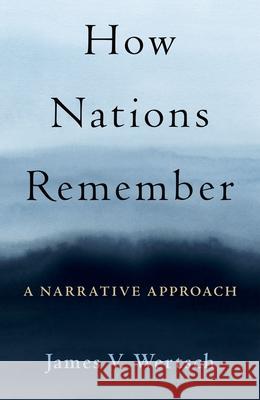How Nations Remember: A Narrative Approach » książka
topmenu
How Nations Remember: A Narrative Approach
ISBN-13: 9780197551462 / Angielski / Twarda / 2021 / 288 str.
Kategorie BISAC:
Wydawca:
Oxford University Press, USA
Język:
Angielski
ISBN-13:
9780197551462
Rok wydania:
2021
Ilość stron:
288
Waga:
0.43 kg
Wymiary:
21.08 x 14.22 x 2.54
Oprawa:
Twarda
Wolumenów:
01
Dodatkowe informacje:
Bibliografia
Wydanie ilustrowane
Wydanie ilustrowane











